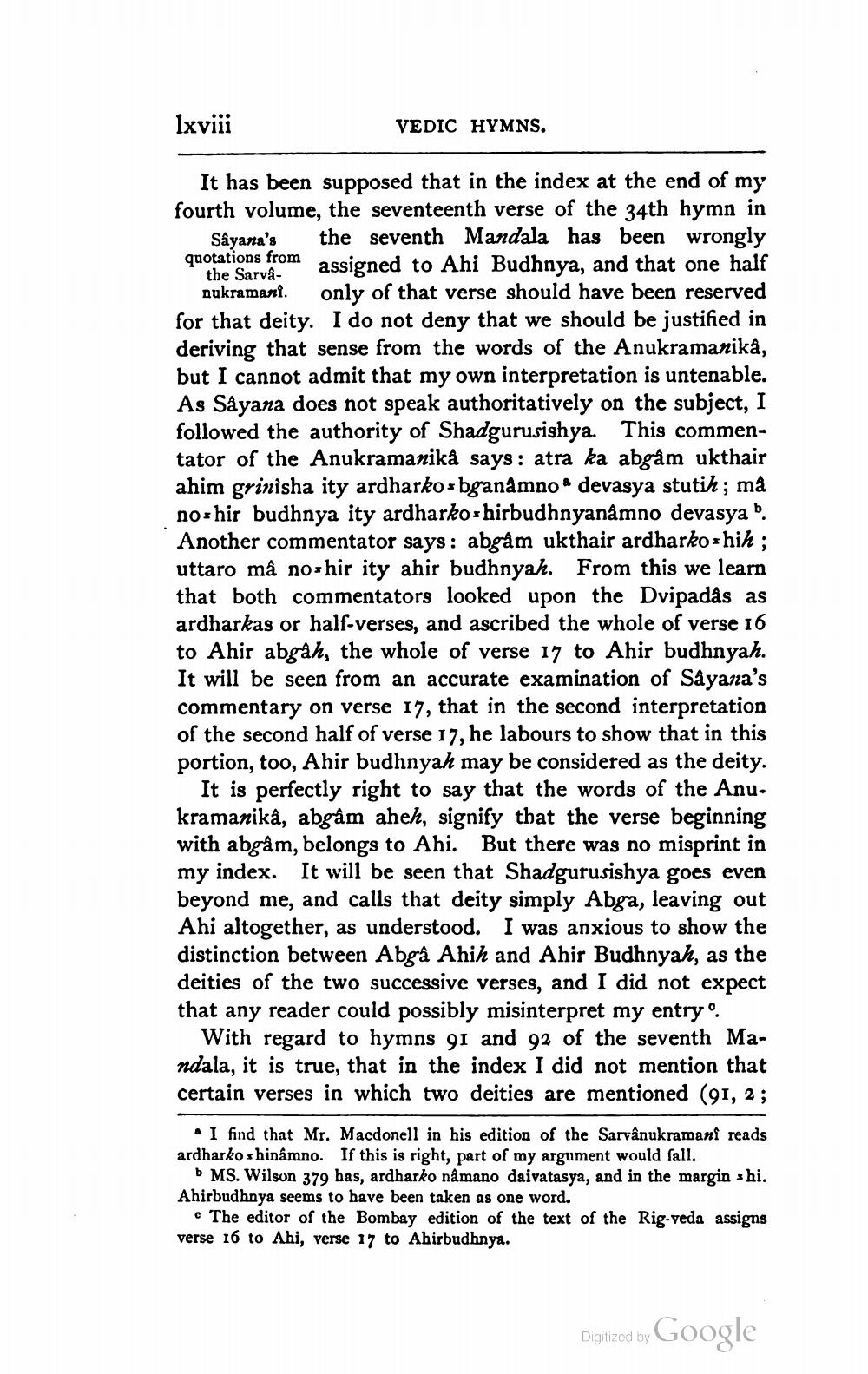________________
Ixviii
VEDIC HYMNS.
It has been supposed that in the index at the end of my fourth volume, the seventeenth verse of the 34th hymn in
Sâyana's the seventh Mandala has been wrongly quotations from assigned to Ahi Budhnya, and that one half
nukramani. only of that verse should have been reserved for that deity. I do not deny that we should be justified in deriving that sense from the words of the Anukramanika, but I cannot admit that my own interpretation is untenable. As Sayana does not speak authoritatively on the subject, I followed the authority of Shadgurusishya. This commentator of the Anukramanikå says : atra ka abgåm ukthair ahim grinisha ity ardharko s bganamno devasya stutih; mà noshir budhnya ity ardharkoshirbudhnyanâmno devasya b. Another commentator says: abgâm ukthair ardharkoshih; uttaro mâ noshir ity ahir budhnyah. From this we learn that both commentators looked upon the Dvipadas as ardharkas or half-verses, and ascribed the whole of verse 16 to Ahir abgåh, the whole of verse 17 to Ahir budhnyah. It will be seen from an accurate examination of Sayana's commentary on verse 17, that in the second interpretation of the second half of verse 17, he labours to show that in this portion, too, Ahir budhnyah may be considered as the deity.
It is perfectly right to say that the words of the Anu. kramaniká, abgâm aheh, signify that the verse beginning with abgàm, belongs to Ahi. But there was no misprint in my index. It will be seen that Shadgurusishya goes even beyond me, and calls that deity simply Abga, leaving out Ahi altogether, as understood. I was anxious to show the distinction between Abgâ Ahih and Ahir Budhnyah, as the deities of the two successive verses, and I did not expect that any reader could possibly misinterpret my entryo
With regard to hymns 91 and 92 of the seventh Mandala, it is true, that in the index I did not mention that certain verses in which two deities are mentioned (91, 2;
* I find that Mr. Macdonell in his edition of the Sarvânukramani reads ardharko shinamno. If this is right, part of my argument would fall.
• MS. Wilson 379 has, ardharko namano daivatasya, and in the margin shi. Ahirbudhnya seems to have been taken as one word.
c The editor of the Bombay edition of the text of the Rig Veda assigns verse 16 to Ahi, verse 17 to Ahirbudhnya.
Digized by Google




